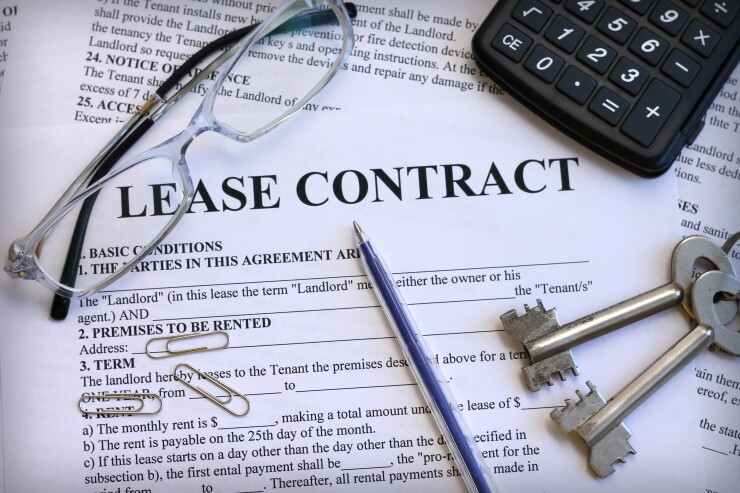The average number of leases held by companies has returned to or exceeded pre-pandemic levels, according to a new report, even as they adjust to new rules that put leases on the balance sheet.
The
Publicly traded companies had to begin complying with the Financial Accounting Standards Board’s leases standard before the outbreak of the pandemic. But private companies and nonprofits were given an extension by FASB until Dec. 15, 2021. Now, they too are subject to the rules, which put operating leases on the balance sheet for the first time under the leases standard, known as "ASC 842" for its place in FASB’s Accounting Standards Codification. Private companies must now navigate a 21% increase in lease liabilities on their balance sheet post-transition, while nonprofit organizations are experiencing a 4% increase in lease liabilities after their transition, according to the report.
“While the lease accounting transition is a major hurdle for organizations in this challenging environment, those same challenges make it more important than ever to have visibility over the entire leasing portfolio,” said LeaseQuery vice president of accounting Jennifer Booth in a statement. “Organizations can now use that insight to optimize operations, renegotiate, right-size and reimagine their leasing needs for the future.”
The report also analyzed the 10 industries most heavily affected by lease accounting and market changes. It found that banking, energy, health care, higher education, professional services and restaurant leases are expanding over pre-pandemic levels. However, financial services, logistics and transportation, manufacturing and retail leases are flat or lower than pre-pandemic levels.






